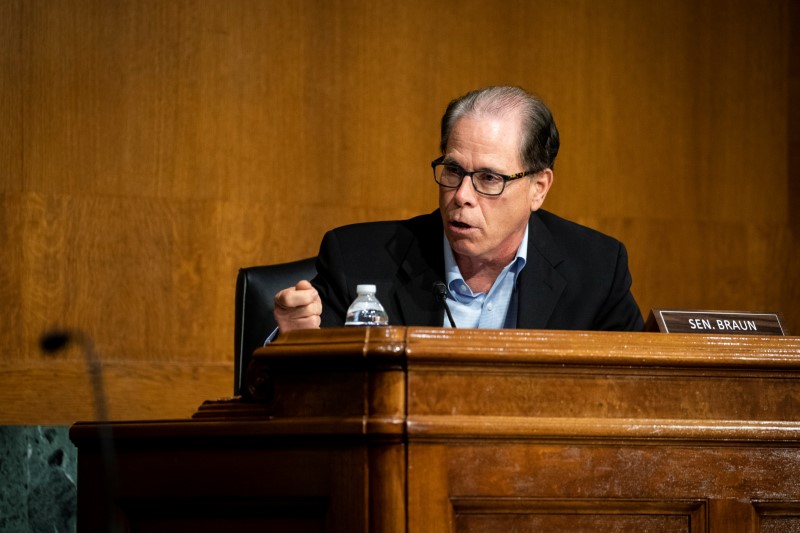By Valerie Volcovici
WASHINGTON (Reuters) - U.S. senators on Thursday introduced a bipartisan bill that would direct the Agriculture Department to help farmers, ranchers and landowners use carbon dioxide-absorbing practices to generate carbon credits, a rare collaboration on climate change.
The proposed Growing Climate Solutions Act directs the USDA to create a program that would help the agriculture sector gain access to revenue from greenhouse gas offset credit markets.
The bill is co-sponsored by Republican Senators Mike Braun of Indiana and Lindsey Graham (NYSE:GHM) of South Carolina, and Democratic Senators Sheldon Whitehouse of Rhode Island and Debbie Stabenow of Michigan.
The bill would establish USDA-certified protocols for farmers, ranch and forest owners seeking to develop projects that can generate offset credits under existing programs. It would offer a new revenue stream for farmers, ranchers and land owners suffering from the economic impacts of global trade tensions and the coronavirus.
Landowners and farmers can generate credits and earn money for activities ranging from reforestation to sequestering carbon in soil to capturing methane from livestock.
"As a Main Street Entrepreneur and conservationist, I know firsthand that if we want to address our changing climate then we need to facilitate real solutions that our farmers, environmentalists and industry can all support," said Braun.
Voluntary offset programs have been around since the early 2000s. In 2018, the average price of such credits was $3/tonne.
Demand for credits is expected to grow when airlines are required to purchase offsets to comply with the industry's Carbon Offset Reduction Scheme (CORSIA), which will begin in 2021.
Republicans in Congress have largely rejected the kind of economy-wide climate measures proposed by Democrats. But some of them https://www.reuters.com/article/us-climatechange-usa-trees/plant-a-trillion-trees-republicans-offer-fossil-friendly-climate-fix-idUSKBN2061FG#:~:text=WASHINGTON%20(Reuters)%20-%20Republican%20lawmakers,instead%20of%20by%20cutting%20emissions have recently floated legislation that promotes carbon removal through land-based measures like planting trees to investments in carbon capture and sequestration technology for power and industrial plants.

"Our nation's farmlands, forests, and ranches hold untapped potential for removing harmful emissions from the air naturally," said Sarah Greenberger, senior vice president at the National Audubon Society.
